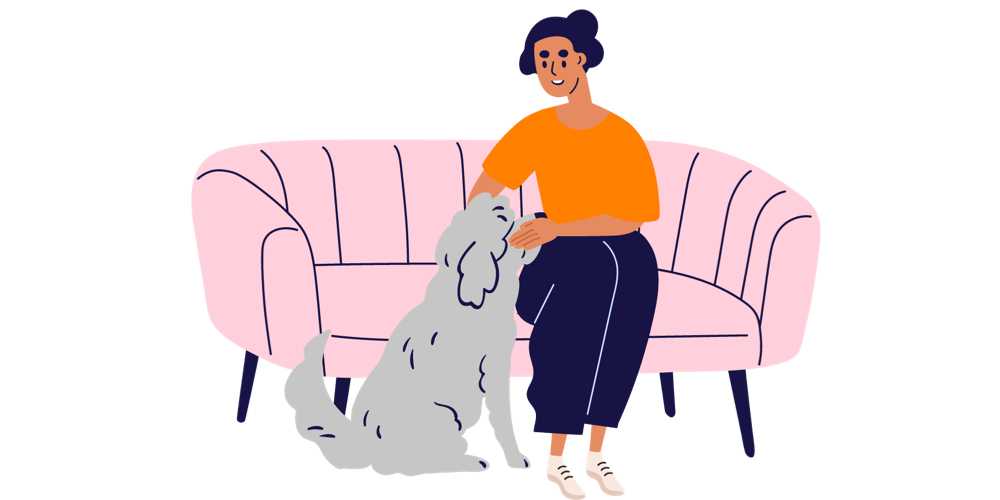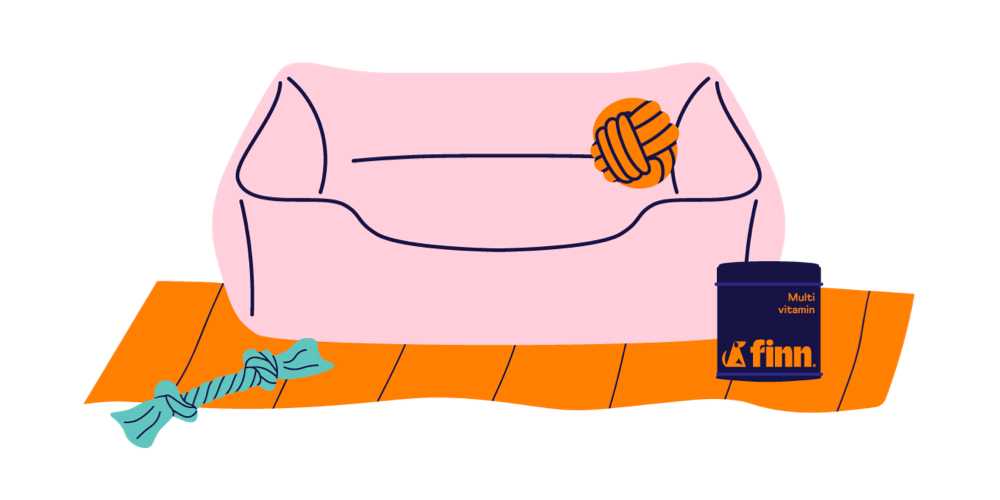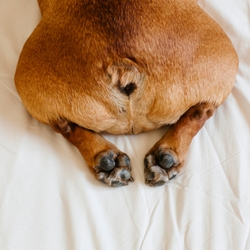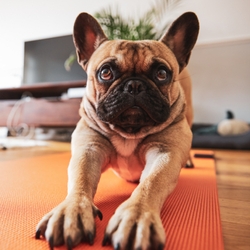
How to Help End-Of-Summer Sadness
Turns out, humans aren't the only animals affected by the Seasons.
1. Be Aware Of Relationships
Be aware of the close relationships your dog has formed over the past free-wheeling weeks. If they happen to be with a family member who is visiting or who is planning to move out, try fostering new bonds with a family member who will continue to live in the house full-time. Assigning a new roommate before the dog loses his old one will help to avoid stressful sleeping situations.
2. Leadership in the Whole Family
Leadership gives a dog something to rely on when routines and household members change. Let everyone in the house have a turn at feeding time. Ask your dog to sit and give the meal as a reward for following the command. Teaching your dog to obey basic obedience commands from everyone in the house will get him accustomed to working for more than one boss while polishing his skills at the same time. Once the dog learns to work for the entire family, seasonal household changes will have a less stressful effect on the dog because his job description stays the same.
3. Use Familiar Objects
Use familiar objects to keep the dog company at night and when alone during the day. If the dog has an item of clothing or a bed linen that smells like you or a favorite family member when he is left alone, the closeness of the familial scent will help him feel less lonely. You may also try calming products such as blankets, toys, and medicated treats.
Dogs also search for their people in the objects that smell most like us, so if you prize your remote control or plan on keeping your new comforter, a smelly, old T-shirt will do the job just fine.
4. Ease Into New Routines
Ease the dog slowly into new routines. If the family member who walks the dog or sleeps with him will soon be spending less time at home, give the task of walking and the joy of sleeping with the dog to someone who will be more consistently present. Do this a week or two before the routine has to change, in order to avoid any sudden change. By the same token, if your house will soon be an empty nest as your kids go away to school, gradually begin leaving the dog alone (an hour or two at a time), setting the stage for the soon-to-be quiet house.
5. Stimulate Your Dog With Exercise
Stimulate the dog’s body and mind with exercise. No matter what the season, exercise can be the key to solving a plethora of canine behavior issues. Rain or shine, warm weather or cold, daily, physical exercise is a must. And, because boredom can foster a list of undesirable behaviors (like digging, chewing, barking, and jumping), stimulating your dog’s mind is equally important as stimulating his body. Indoor games of fetch and drilling basic obedience commands will help keep your dog’s mind as well as his body from wandering off-limits.
It’s only natural, after having spent endless days and nights with loved ones only to be left to their own devices for hours on end-that even the best-trained dogs have been known to chew a rug or two. And it’s understandable that even the most reliably housebroken dog might mark a spot in a loved one’s room. What’s more, it shouldn’t surprise you that even the most laid-back dog exhibits the signs of separation anxiety. after having spent a few action-packed, fun-filled weeks with you and the kids. But taking the time to ease him out of the dog days of summer will not only help you to avoid the hours of stress that come with the changes of any season, it might also even teach your dog not to sing the B-L-U-E-S at all.








Comments: